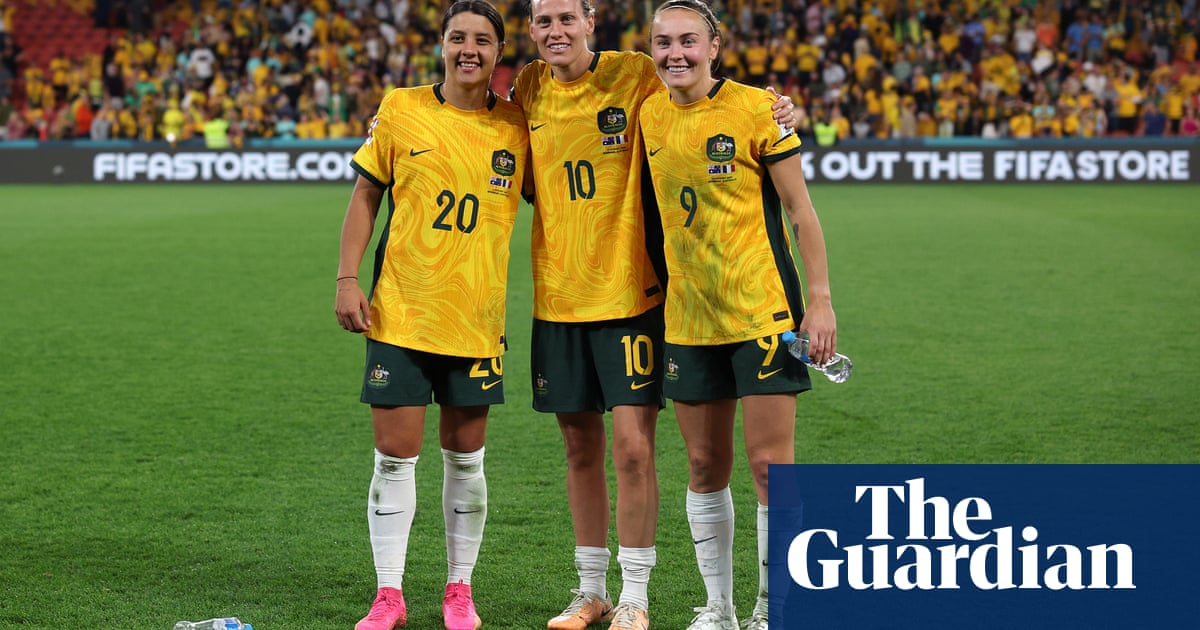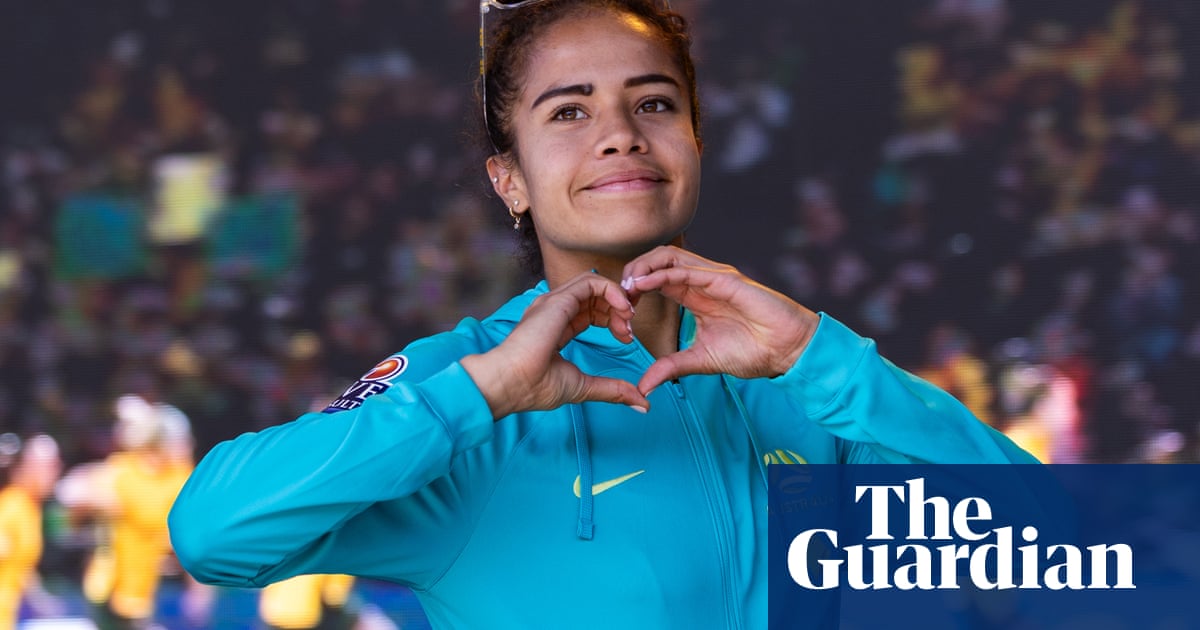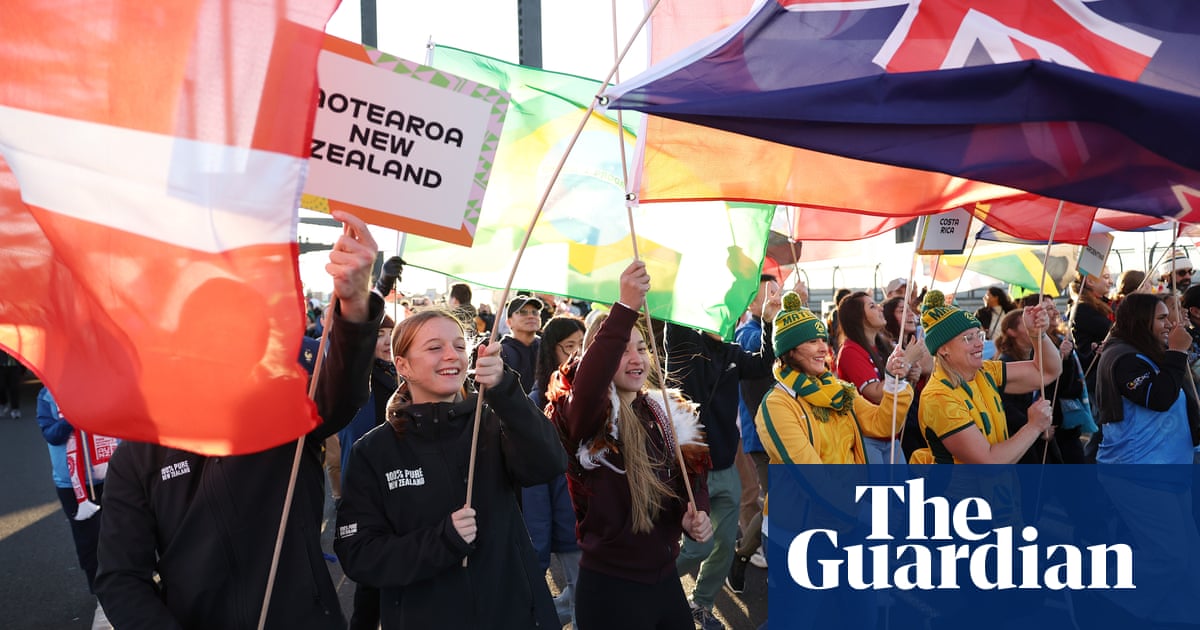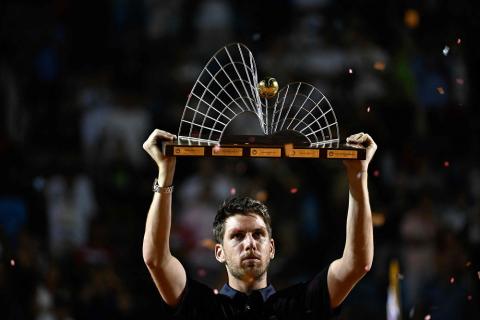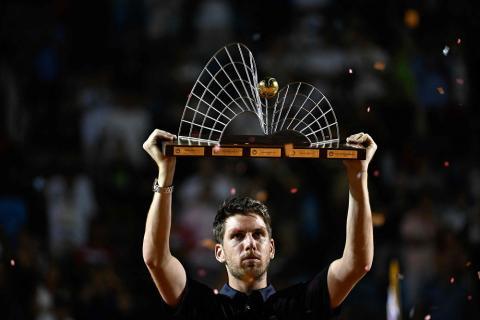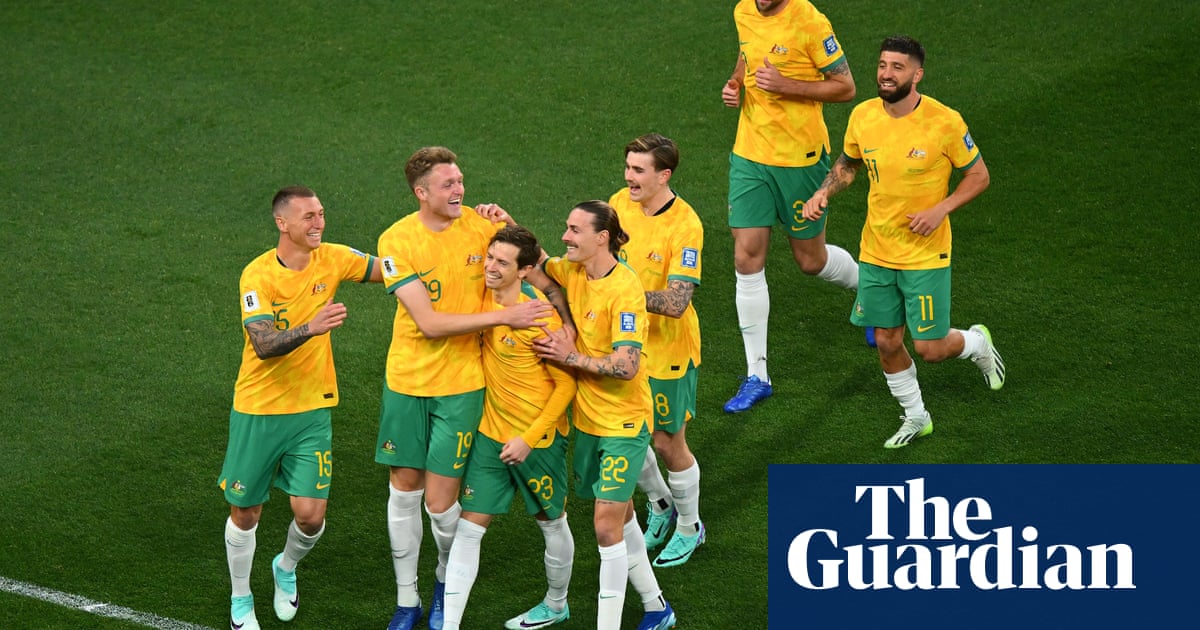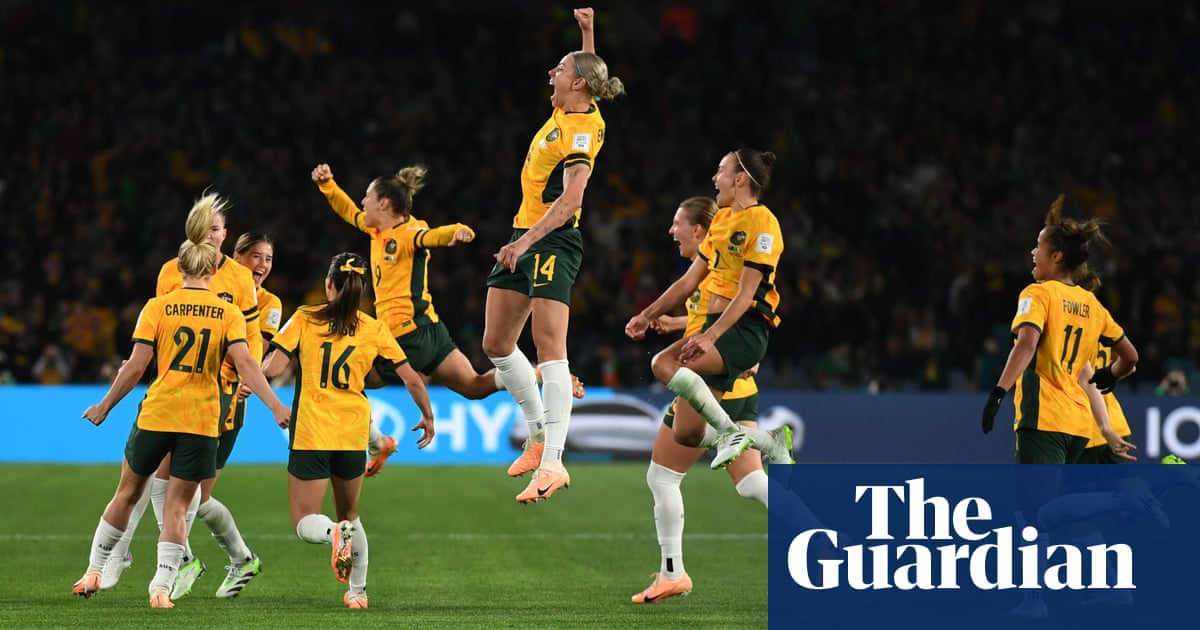
Ayear with two of the greatest men’s footy grand finals Australia has ever seen, yet here we are. Sensational success in the pool, sidelined. Glenn Maxwell’s extraordinary World Cup double-ton? A blip. World cups and world championship golds, merely worth a mention. Even Big Ange, squeezed.
Instead, looking back on 2023 through an Australian sporting lens it’s hard to see past the Matildas. In the stands 651,773 spectators enjoyed their matches. On television the team upended decades of declining ratings to set a new viewership record. In coffee shops, petrol stations, dog parks and workplaces they became the focus of conversation.
Change in women’s sport used to be gradual. But this year the Matildas upended the status quo. The formula has been not so much tweaked as trashed.
Return to five months BCV: before Cortnee Vine. The Matildas’ first match of the year, against Czechia in February, attracted 7,702 fans to Gosford – barely a third of the ground’s capacity. Three days later, in Sydney, the match against Spain – who would ultimately win the Women’s World Cup – drew 17,333, leaving more than 10,000 empty seats.
By the end of the year, after record crowds throughout the World Cup, the Australians put up the full-house sign at a clash against Taiwan in Perth. The preceding match against the Philippines was moved to Optus Stadium to accommodate the rush on tickets – 59,155 attended.
The public couldn’t get enough. Merchandise sold out. Google reported its most searched term for the year was Sam Kerr. The second: Mary Fowler.
But a successful World Cup was never guaranteed. Before the Matildas bump, there were the Matildas’ bumps. There was Kerr, news of her calf injury released minutes before the first game. A lumbering start, and a bewildering loss to Nigeria. An improvement of fortunes: the pressure on against Canada, but the Olympic champions cast aside. Denmark, too, dispatched.
Then, against France in the quarters – an ordeal drawn out over extra-time and 20 spotkicks – a nation’s nerves were tested, but ultimately rewarded by Vine’s cool head and simple sidefoot. Even in the semi-final defeat to England, perhaps the most memorable moment of all: Kerr’s glorious strike that will leave a generation wondering what might have been.
The Matildas found themselves at the summit of Australian sport and their everyday character made them approachable and admirable, pushing them higher still. Kerr, Caitlin Foord and Emily van Egmond, friends since forever. Mackenzie Arnold becoming an overnight star and sharing her story of hearing loss. Katrina Gorry, a football journeywoman who, almost a decade after her Asian player of the year award, finally earned wider recognition.
Their careers could be traced from semi-professional or even amateur roots. Arduous journeys from relative obscurity to the sporting pinnacle made progress hard-earned. This everyday appeal – this freshness – proved irresistible.
Yet the Matildas’ legacy on Australia sport has been both immediately obvious and unclear. Crowds at standalone A-League Women matches have almost doubled, but with such a low base the average is still under 2,500. NRLW, AFLW and WBBL have reported attendance peaks but the response has been patchy.
The Matildas might be dragging Australian sport towards some degree of gender balance but the tow rope is long – 2024 and beyond will determine whether it frays.
The AFLW grand final was memorable for being the first one in Melbourne since 2018. The Brisbane Lions overcame North Melbourne – in the club’s first men’s or women’s decider since 1999 – in front of more than 12,000 fans.
That result ended a torrid 2023 for Queensland clubs. There were defeats for Brisbane sides in the BBL decider and in the Australia Cup, won by Perth and Sydney FC respectively.
And the Brisbane Lions were within a kick of beating a Collingwood side that has quickly turned around its fortunes under coach Craig McRae. Bobby Hill’s hanger, and an eternally unfazed Nick Daicos were the highlights of an electric AFL grand final at the MCG.
A day later at the rugby league showpiece, the NRLW title was won for the first time by Newcastle. The Knights overcame the Gold Coast in the Titans’ first grand final appearance, thanks to some late chip-and-chase brilliance from fullback Tamika Upton.
And Queenslanders’ misfortune continued when – despite Ezra Mam’s hat-trick – the Penrith Panthers were hauled to victory on the back of captain Nathan Cleary who combined a forgettable first hour with an imperious final 20 minutes. The NRL premiership, the Panthers’ third in succession, fuelled their claims to the title of the sport’s greatest side.
There were continued cricket successes for men and women, and a netball World Cup. Australia’s swimmers topped China and the USA at a world championships for the first time in 22 years. Ariarne Titmus’ world record in the much-anticipated 400m freestyle showdown against Katie Ledecky and Summer McIntosh was the standout. And many triumphs in other Olympic disciplines that bode well for Paris 2024.
There was Jai Hindley’s stage win at the Tour de France. Laura Enever’s epic wave. Jess Fox’s canoe domination.
All up, the successes of 2023 have been a boon for Australian sport fans, but have set expectations high for what comes next. Former Socceroos boss Ange Postecoglou – another standout for the year – had something to say about that point in September.
The coach who won the Scottish football title with Celtic for the second time in 2023, and now has Tottenham near the top of the Premier League, has left football fans giddy – and not by accident.
“Let them get excited and ahead of themselves, that’s the beauty of being a supporter,” he said. “If they think we’re going to be world beaters? Great, it’s then up to us to match those expectations.”




